#law of desire 1987
Explore tagged Tumblr posts
Text

i love her goofy ass so much 😭 lmaoo
2K notes
·
View notes
Text
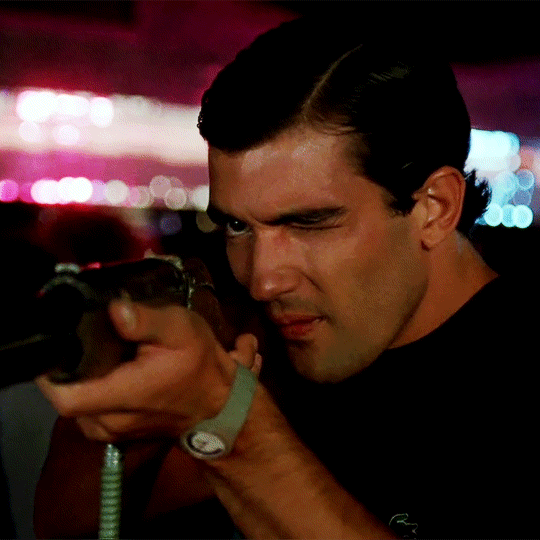
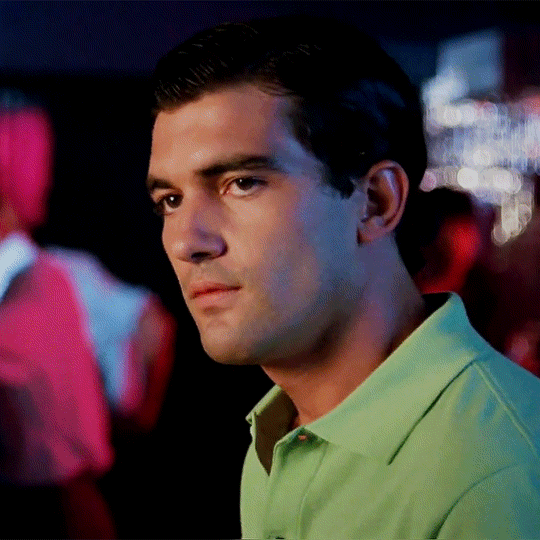

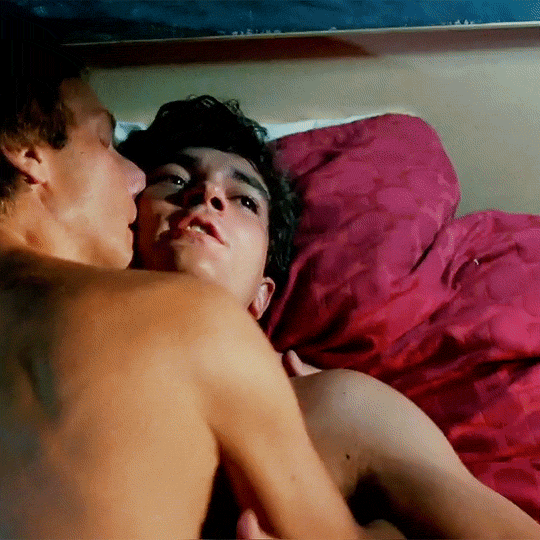


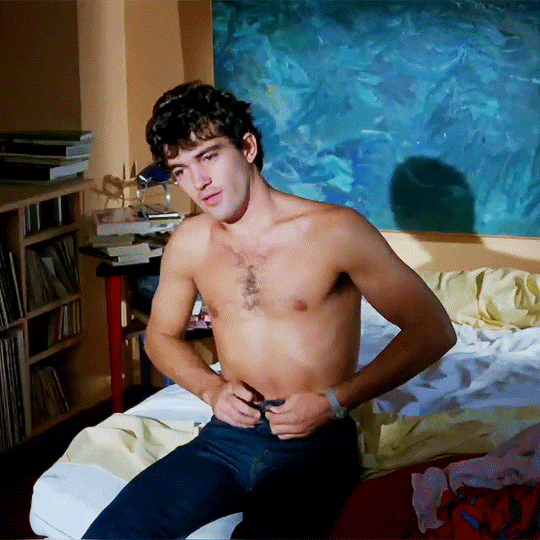
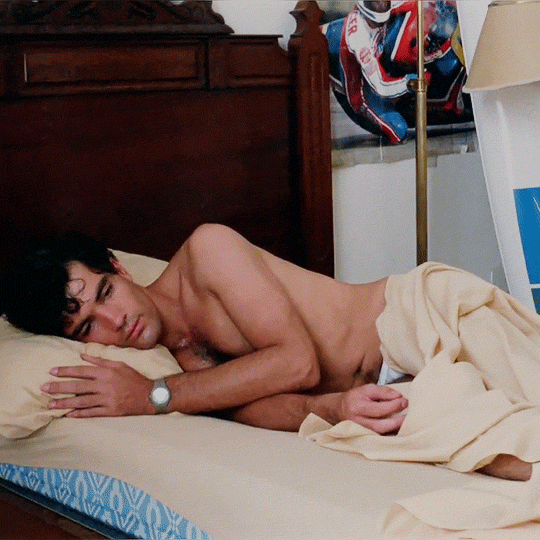

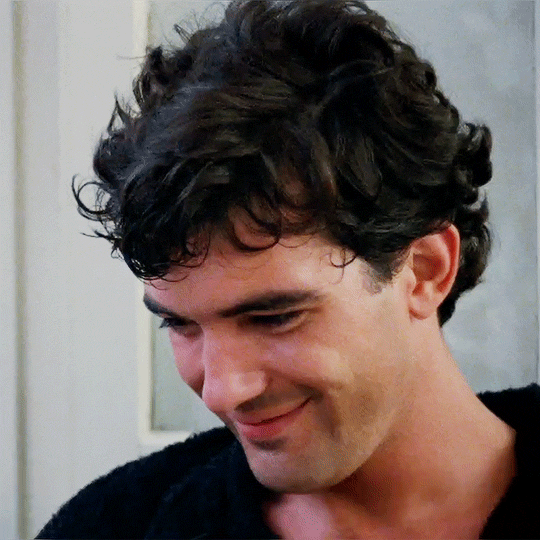
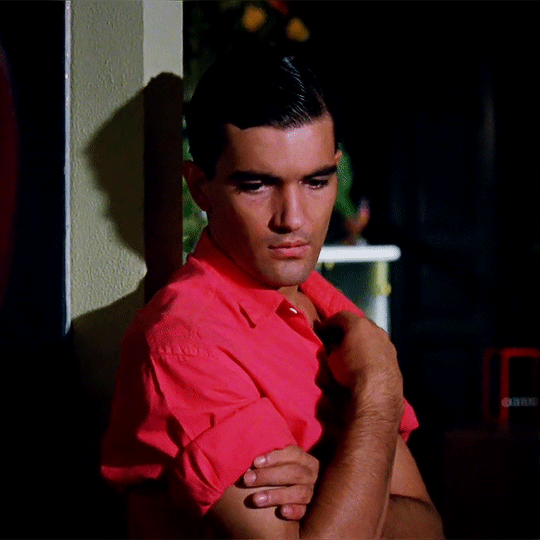

Antonio Banderas as Antonio Benítez
LA LEY DEL DESEO / LAW OF DESIRE (1987) directed by Pedro Almodóvar
#antonio banderas#antonio benítez#la ley del deseo#law of desire#pedro almodóvar#almodóvar#film#movie#filmedit#movieedit#avatar#icon#icons#1987#1980s#80s
196 notes
·
View notes
Text

Law of Desire, Pedro Almodóvar
#law of desire#la ley del deseo#pedro almodovar#1987#1980s#80s#spain#spanish#movie#film#cinema#cinematography#screencaps#stills
9 notes
·
View notes
Text
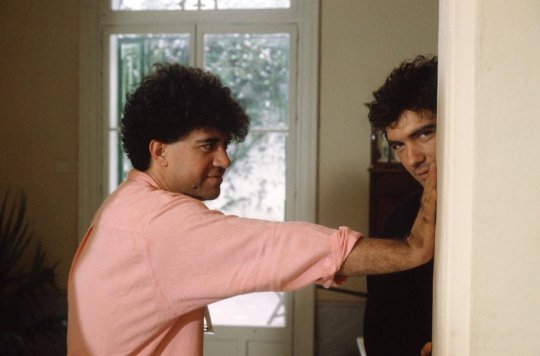
17 notes
·
View notes
Text
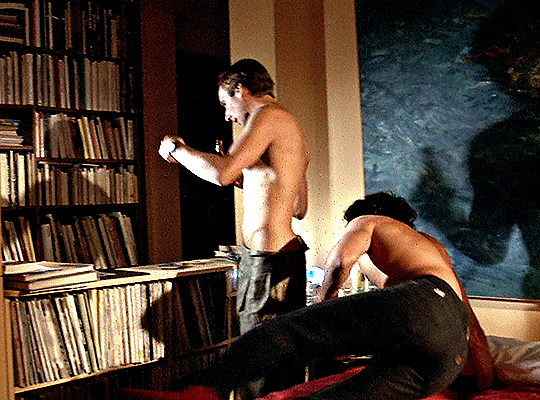

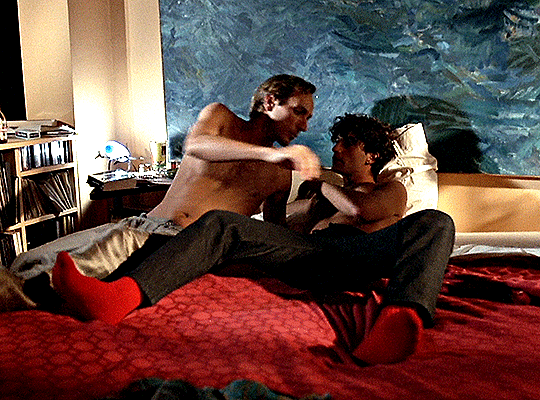
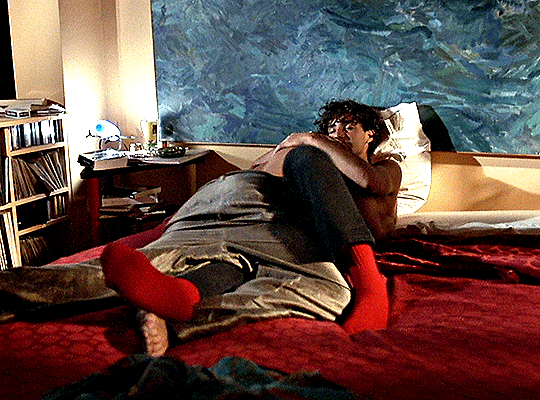
Eusebio Poncela and Miguel Molina Law of Desire (1987) dir. Pedro Almodóvar
#Law of Desire#La ley del deseo#Eusebio Poncela#Miguel Molina#Pedro Almodóvar#vintage gay#guys#movies#gay kiss#lgbt media#*#**#lgbtedit#filmedit#userpedro#holesrus#usertennant#🍑
9K notes
·
View notes
Text


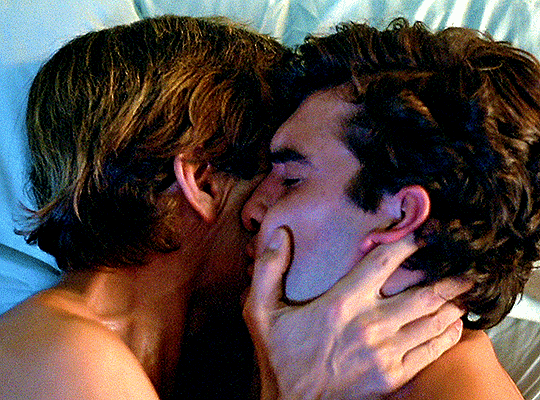

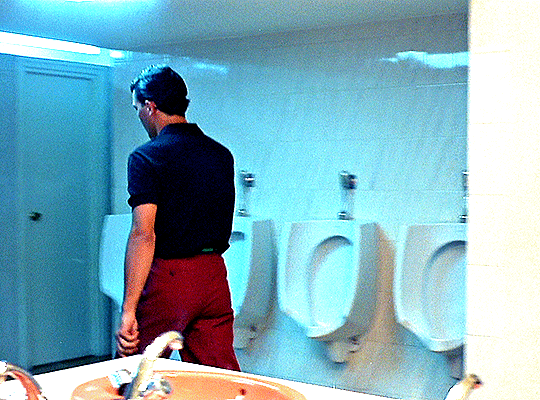

Law of Desire (1987) dir. Pedro Almodóvar
#Law of Desire#La ley del deseo#Antonio Banderas#Eusebio Poncela#Miguel Molina#1980s#thriller#comedy#drama#romance#gif#michi#filmedit#lgbtedit#vintage gay#userpedro#holesrus#userlenie#kazeo2se
2K notes
·
View notes
Text
There's a lot to be said about how many Native tribes, often lacking in the economic opportunities available in many non-tribal areas, have turned their economic development models towards providing services that are forbidden to provide outside of tribal land. The 1987 California v. Cabazon Band of Mission Indians ruling acknowledged the right of tribes to operate gambling facilities regardless of state regulations, and the Obama-era loosening of weed regulations made it easier for them to sell marijuana with less concern for non-tribal laws.
Although these policy developments were not something that most tribes actively sought out, they eventually realized that these policies gave tribal lands a monopoly on certain goods and services that people were unable to acquire elsewhere. Perhaps for the first time ever, government decisions had given tribal economies an advantage over the non-tribal economies surrounding them. This led many tribes to lean hard into their newfound policy-based comparative advantage, building up their local economies around non-Native tourism in a way that sits awkwardly with many Native activists' desire for economic sovereignty.
Tribes with well-managed tribal governments have been able to use this arrangement to great advantage. The Eastern Band of Cherokee Indians (who this post is really about, simply because I know a lot about them) not only uses the money generated by their casino resort to fund social services, they also distribute some of the casino's earnings as cash dividends to Cherokee residents, effectively funding a basic income for the tribe with the money lost by gamblers (who are, disproportionately, white outsiders). After centuries of being robbed by surrounding white communities, there's something of a perversely poetic justice to this (even if those losing the most money at the casino are not necessarily the same segments of the white population who gained the most from Cherokee dispossession).
But it's not all good news. This arrangement also has some concerning side effects on the political economy of Native tribes. The EBCI Cherokee tribe have long opposed federal recognition of the Lumbee, another group in North Carolina who are the largest Native tribe in the US that is unrecognized by the federal government. One of the reasons that the Cherokee have turned their backs on the Lumbee's quest for recognition is because it would threaten their monopoly on gambling in North Carolina. If the Lumbee were treated as a proper tribe, they could open up their own casino, threatening the monopoly profits of the Cherokee casino. Thus, another use of the Cherokee's casino funds has been to actively lobby against another Native tribe.
The EBCI Cherokee's economic reliance on their casino has damaged any prospect of inter-tribal Native solidarity in North Carolina. From the Cherokee's perspective, they have been placed in a situation where the desires of other tribes come at the direct expense of their own tribes' desires. The tension between these two is not a natural phenomenon, but rather the product of a policy framework which leaves little choice for tribal economic development outside of cutthroat monopoly preservation. If solidarity is to live, the casino-first model must die. The question is: what replaces it?
#North Carolina#Native American#we're doing old school Afloweroutofstone effort posting today I guess#Cherokee#Lumbee
959 notes
·
View notes
Text

Born sixty years ago today: striking jolie-laide Spanish actress, former punk musician (her 1980s band was called Peor Impossible (“the worst possible”)), cutting edge fashion muse (she’s modeled for Jean-Paul Gaultier, Thierry Mugler and Alexander McQueen) and ultimate Madrileña – the glorious Rossy de Palma (née Rosa Elena García Echave, 16 September 1964)! With her unforgettable asymmetrical Picasso-esque face, de Palma is a vivid presence in the cinema of flamboyant Spanish auteur Pedro Almodovar (they’ve collaborated on eight films together to date, starting with Law of Desire in 1987. She’s also worked with the likes of Robert Altman, Lina Wertmuller and Terry Gilliam). Que maravillosa! Feliz cumpleaños!
#rossy de palma#pedro almodóvar#spanish actress#lobotomy room#spanish cinema#madrileno#fashion#muse#fierce#kween#glamour#diva
28 notes
·
View notes
Text

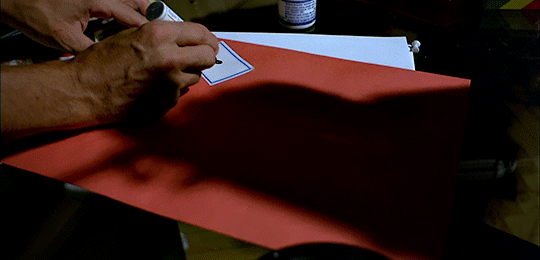

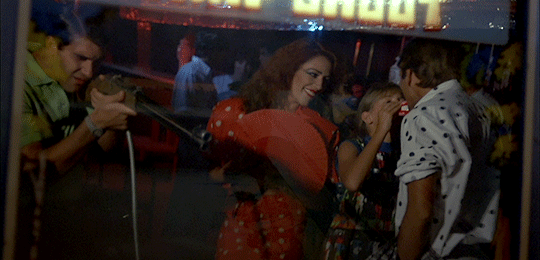


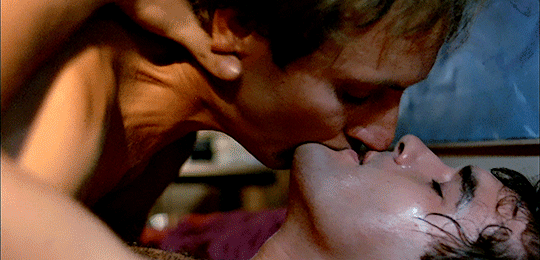

LA LEY DEL DESEO // LAW OF DESIRE (1987) dir. PEDRO ALMODOVAR
83 notes
·
View notes
Photo

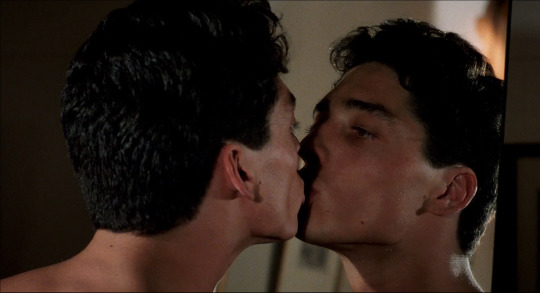

Law of Desire (1987) dir. by Pedro Almodóvar
279 notes
·
View notes
Text



law of desire (1987) dir. pedro almodóvar
#law of desire#pedro almodóvar#antonio banderas#eusebio poncela#carmen maura#film aesthetic#film stills#film#film quotes#80s films#80s nostalgia#80s movies#spanish film#spanish cinema#film quotations#film quote#gay film#lgbtq media#lgbtq+#gay
20 notes
·
View notes
Text

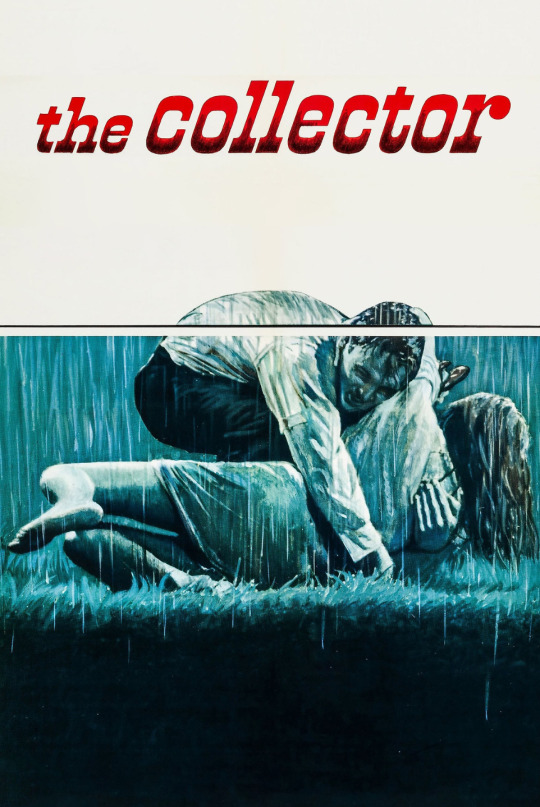


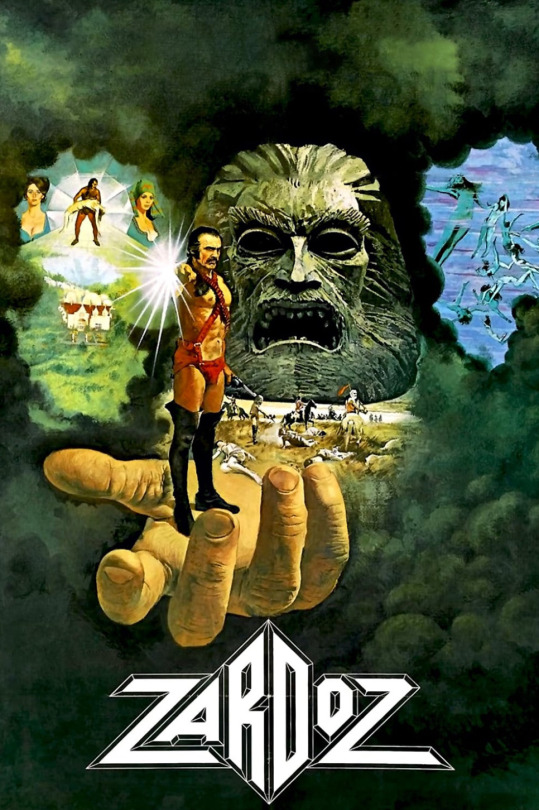
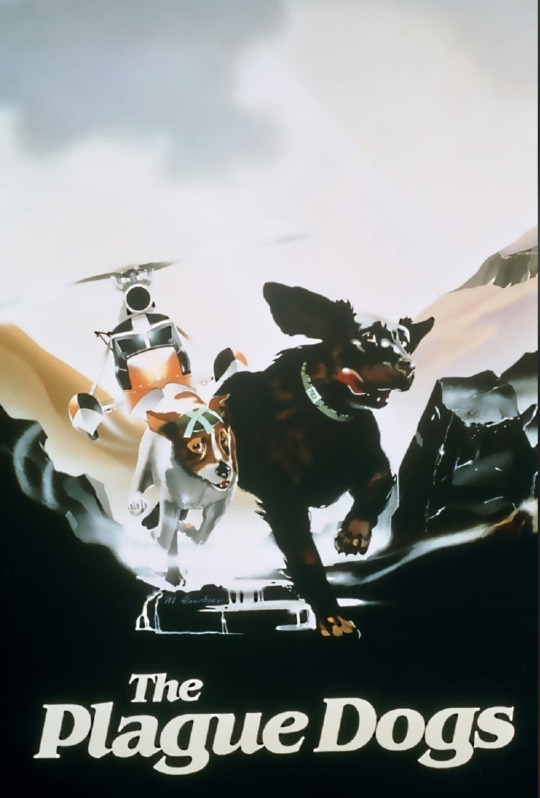
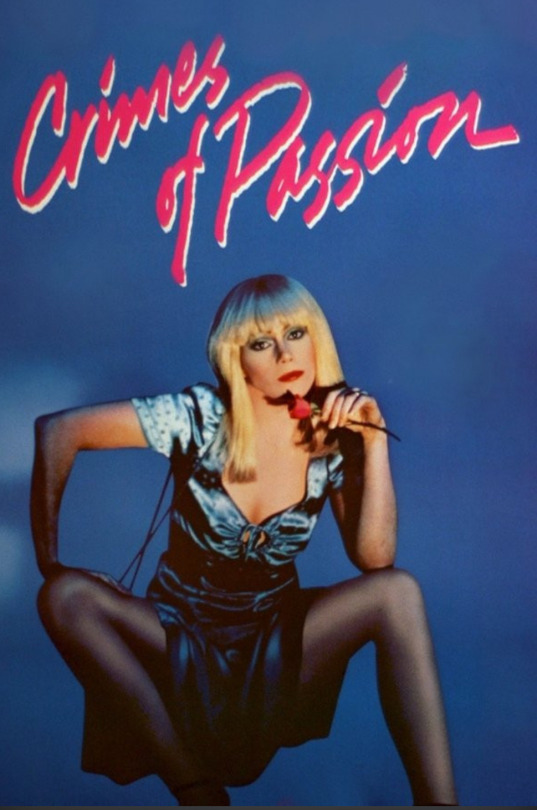
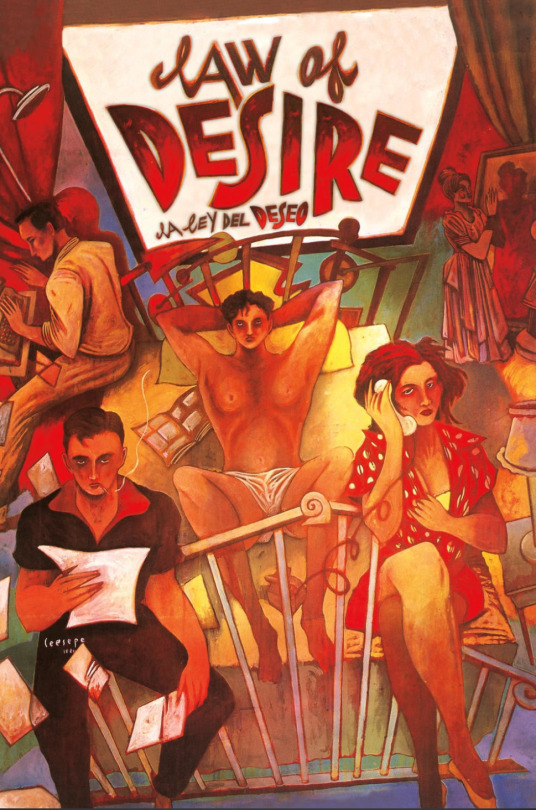
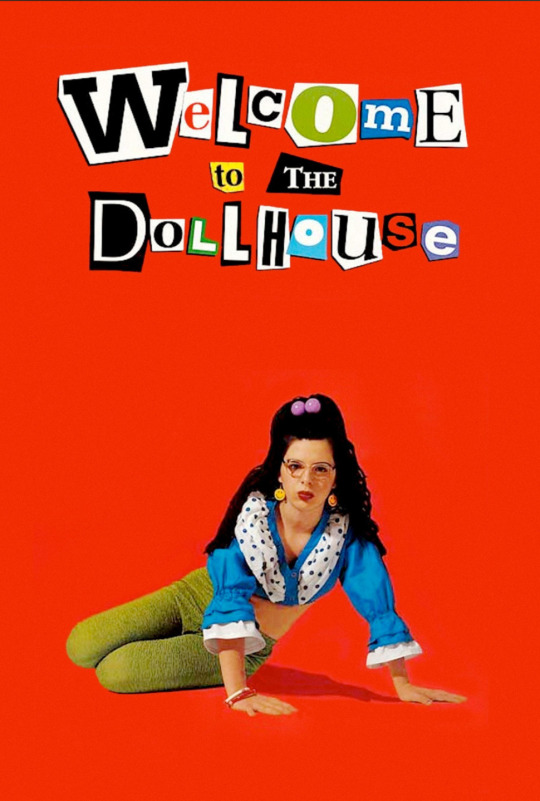
Favorite new watches of 2023:
Onibaba (1964), dir. Kaneto Shindo
The Collector (1965), dir. William Wyler
The Cremator (1969), dir. Juraj Herz
Straw Dogs (1971), dir. Sam Peckinpah
Zardoz (1974), dir. John Boorman
The Plague Dogs (1982), dir. Martin Rosen
Crimes of Passion (1984), dir. Ken Russell
Law of Desire (1987), dir. Pedro Amaldovar
Welcome to the Dollhouse (1995), dir. Todd Solondz
#first watches#onibaba#the collector#the cremator#straw dogs#zardoz#the plague dogs#crimes of passion#law of desire#welcome to the dollhouse#2023 watches#movie stuff
42 notes
·
View notes
Note
esteemed trungles, i come with an important question. What is the best romcom to watch in winter?
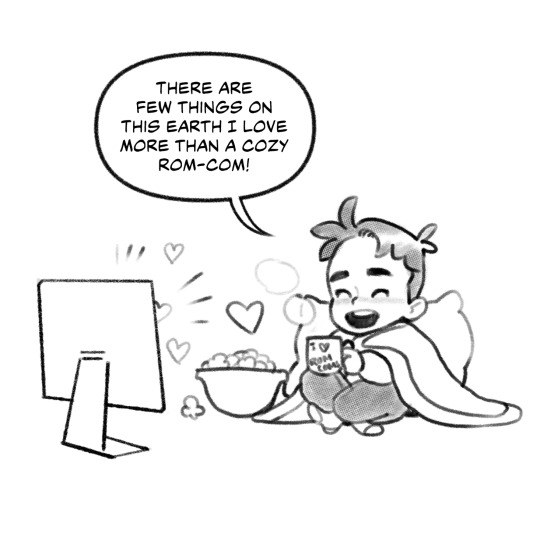
ESTEEMED omg incredible. I don't think I've ever been esteemed before, so I'll do my best to live up to it.
SO I'm a little late on this question for Holiday rom-coms, but it's still winter here right now, and I love rom-coms. In no particular order:
The Holiday (2006) - Kate Winslet! Jack Black! Cameron Diaz! Jude Law! John Krasinski for some reason (he shows up for like three minutes)! Kathryn Hahn (also in the same scene as John Krasinski)! Also there's a little, itty-bitty A Knight's Tale reunion because Rufus Sewell shows up and so does Shannyn Sossamon, which I find to be very sweet. Jack Black is cute as Christmas and hot as breakfast in this movie, and he somehow did this straightforwardly sweet rom-com AND Tenacious D in The Pick of Destiny in the same year. The man has RANGE. You get two romances in this movie, and I think the Kate Winslet one is much more of a high-budget Silver Screen romance while the Cameron Diaz one is much more a Hallmark Channel romance, which I think is great because I love both kinds of romances.

When Harry Met Sally (1989) - This movie is iconic, and I love it to bits. I always have it saved to my phone so I can watch it on literally every plane ride just in case I get stressed out. Meg Ryan is incredible in it as a neurotic and incredibly self-assured woman who develops a friendship with Billy Crystal's character over the course of about a dozen years. Bruno Kirby and Carrie Fisher play some hilarious supporting characters. This movie is also lovely in that the most dramatic character arc belongs to the male love interest. Like, yes, Meg Ryan's character also grows, but there's no change to her world view or her wants and desires because she's not hurting anyone with the way she navigates those things, and Billy Crystal's character grows into someone you could imagine having lunch with, a far cry from when we first meet him. It's also very well-written. I downloaded the script just so I could pick it apart and learn from it.

Single All the Way (2021) - KATHY NAJIMY AND JENNIFER COOLIDGE ARE BOTH IN THIS MOVIE. I don't know what I was expecting, but this holiday rom-com charmed the thermal socks off me. Michael Urie and Philemon Chambers play best friends who fake a relationship so Michael's family will stop badgering him about there being no romance in his life. It's a fake dating movie, and it is also a delightful subversion of the Hallmark romance. Michael Urie escapes his big city life back to his small hometown where he meets an extremely hunky local spinning instructor (lol) played by Luke McFarlane, who is a literal mainstay of many actual, literal Hallmark romance movies. It's great. I enjoyed it immensely.
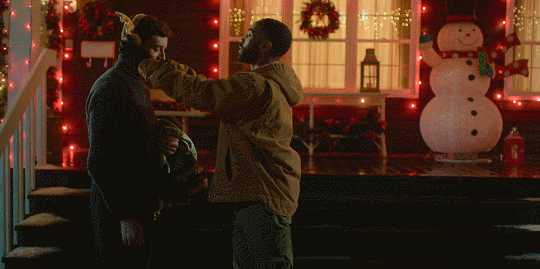
Moonstruck (1987) - Cher and Nicolas Cage star in this movie, and it's sort of difficult to describe. It's very funny, and it's heightened by how every single actor plays their character with the seriousness of a prestige drama. Olympia Dukakis and John Mahoney are also in this, and they're both delightful. I still occasionally yell, "I lost my hand! I lost my bride!!!" out loud at random intervals in the year. Keeps my loved ones on their toes.

While You Were Sleeping (1995) - This movie is a charmer and a half! Sandra Bullock stars as a lonely woman who works at the L in Chicago who falls in love with one of the passengers. One day, he falls victim to an attempted mugging and falls onto the tracks. Our heroine saves his life, but he winds up in a coma. A series of misunderstandings leads his entire family to believe that she's his fiancée, and polite shenanigans ensue (except in the case of one testicle-inspection, which might be regarded as pretty impolite, but it's very sweet in context). I also find Bill Pullman extremely blandsome and regular-looking to the point of being sincerely erotic. I don't know how this happened.
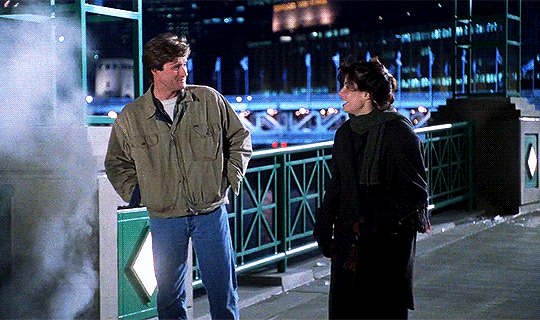
And I think that covers my wintry rom-coms! I watch all of them year-round, but these ones all vaguely take place in the winter-time and sometimes have a little bit to do with the holidays season.
#asks#romantic comedy#romcom#when harry met sally#moonstruck#the holiday#while you were sleeping#single all the way#ask trungles
217 notes
·
View notes
Text


February 23, 1987 - Shannen's article in the US magazine, photos from Aaron Rapoport, found in shannen-doherty.net
The article says:
WILFORD'S SMITTEN BY OUR HOUSE'S SHANNEN Typecasters, take note: On NBC's Our House, Shannen Doherty plays fifteen-year-old Kris Witherspoon, a bright, ambitious, straight-A student whose burning desire is to become an astronaut. But in real life, fifteen-year-old Shannen is... an unbelievably bright, ambitious straight-A student whose burning desire is to become "a well-known actress." Turns out, though, Shannen's mom wasn't always keen on her daughter's plans. "I asked if I could go into acting," recalls Shannen, "and she said 'No!"--and she kept saying no for two years! All you hear about is these kids getting involved with the wrong things: drugs and partying." Yes, but Shannen's idea of a good time is "going to a movie with friends" or-wow!-throwing a sleep-over party. After high school, she plans to attend UCLA's film school and minor in law "so I have something to fall back on." Upon meeting Shannen, series star Wilford Brimley (who plays Doherty's crotchety grandfather) was smitten. "Ah, an Irish girl with an Irish smile!" he cooed, and shortly thereafter bought her a magnificent quarter horse. "He's been like a grandfather to me," she says. No surprise there.
#shannen doherty#1987#1987 article#us magazine#1987 us magazine#1987 photoshots#aaron rapoport#1987 aaron rapoport#1987 shannen doherty#article#magazine article#1980s#1980s shannen doherty#1980s photoshots#1980s article#our house
8 notes
·
View notes
Text
I Guess Her Generation Isn't Cool With Witchcraft (Gingerbread)
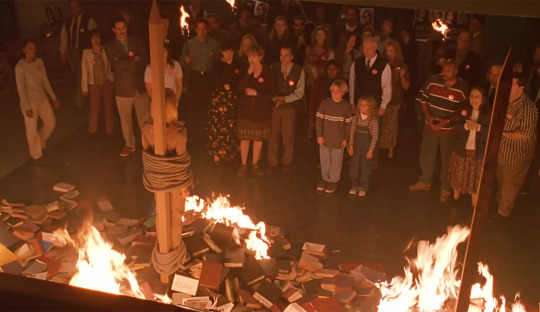
On the 24th May 1988 the Conservative government of Great Britain, led by Margaret Thatcher, passed a law known officially as the United Kingdom Local Government Act 1988. This Act had many effects, but by far its most famous and influential section was the part that has come to be known as Section 28. Section 28 outlawed any school or local authority in the United Kingdom from “promoting homosexuality”, “publishing any material with the intention of promoting homosexuality”, or “promoting the teaching of the acceptability of homosexuality as a pretended family relationship”. Given that the act (intentionally) made no effort to define “promotion”, the effect was clear and predesigned: from 1988 until its full repeal in 2003, queerness was illegal in British schools.
This justification for this discrimination was the same one that is always trotted out - the protection of children from predatory influences. Homophobic attitudes were rising in the wake of the HIV/AIDS epidemic, whipped up by an entrenched conservative government and a vulturine news industry. The likes of The Sun, Daily Mail, and The Telegraph ran regular scare pieces about the homosexual lifestyle and its apparent attempts to indoctrinate children. The most benign depictions of queer acceptance were accused of being pornographic, of being propagandic, of “glorifying homosexual intercourse”. One book - Jenny Lives With Eric And Martin - was described by The Sun as “vile” and Today as “gay porn”[1], and was deemed controversial enough to kickstart the movement that resulted in Section 28. It depicts a girl with a gay father, engaging in such salacious events as going to the laundrette, and planning a birthday party.
The accusations leveled at these books were lies, and easily revealed as lies to anyone concerned enough to engage in actual research, but their purpose was not to be true. Their purpose was to combine latent homophobia in the general population with the instinctive human desire to protect the young. Together, these elements create a powerful boogeyman. This boogeyman was then paraded out during the general election of 1987, in which the Labour Party was attacked for their (claimed) promotion of such offensive materials. This was an imagined threat cooked up by bigots and seized upon by political actors most interested in protecting their capital. It worked. The Conservatives won the election with 42% of the vote, and remained in power until 1997.
It is into this cultural landscape that Buffy airs the eleventh episode of Season Three, Gingerbread. The plot revolves around the deaths of two young children, and how those deaths spark a wave of anti-witch paranoia among the townsfolk of Sunnydale; a paranoia that escalates into censorship, persecution, and eventually a literal witch-burning. The dead children are eventually revealed to be an evil demon exerting some kind of mind control on the population, which is standard practice for Buffy hijinks. The important aspects are the real-world parallels that this storyline is intending to highlight.
Read More
#btvs#buffy the vampire slayer#btvs meta#meta#essay#insect reflection#s3#gingerbread#buffy summers#willow rosenberg#theme: queerness#racism#section 28
100 notes
·
View notes
Text
One of the funniest things about warhammer 40k is that so much of its worldbuilding relies on an idea of 'the human psyche, its desires, fears, drives, insecurities, triumphs, dysfunctions.'
And on one level, the grim darkness of the setting is due to IN-UNIVERSE complete misunderstanding of that thing. Like the way that religious fundamentalism, fascism, reactionary politics, mistake the structures that enfranchise wealth and power for natural law. And then mistake observing how different classes react to living under such brutal conditions as 'human nature.'
But on another level, the misunderstanding ALSO comes from OUTSIDE the fictional universe. Like, OKAY, I'm not some kind of all-knowing superbrain that knows exactly how all people think and why. But even I can see that:
the archetypes baked into the Chaos Forces,
the paranoia of the Imperium,
the genres of power fantasies represented by different space marine chapters,
the repression of the Aeldari,
Drukhari hyperviolence,
etc. etc.
they have nothing to do with deep memes in the human psyche. They have everything to do with the projection of some specific British guys in 1987... underneath layers of collectable/toy marketing and the hangups of licensed paperback authors.
(I still don't know what the fuck is up with Bill King. Why is he like this???)
BUT, I think this element of shallow unreality actually works to Game Workshop's benefit a little because there is this... unspoken smugness that follows Warhammmer 40k around. A little self-superiority transcends what faction you prefer or if you care about books or games or the tabletop or whatever. There are two expressions and it exists in both:
you kind of know that this fictional universe's emotional core is based on silly bogus grounds. you feel better than its characters, more hinged, with a more realistic relationship with desire and self-actualization. You're on the outside looking in and it's preposterous, or,
you are a silly person who thinks the universe IS accurate to the thoughts and feelings of human people and this gives you CONFIDENCE because whatever you believe you also FEEL you are 'built different' because you ARE built differently than its model.
It's almost unbearably easy to roll your eyes and be like, how eldritch can the warp be??? if its just some thatcher era people being weird about gender and self-security???? Especially when much of the media outside tabletop battles you could 'win' styles that the universe's hazards are basically a calvinball heads-I-win-tails-you-lose situation. We're told that scary feelings and a bad relationship with self-esteem are as unconditionally deadly as machine gun fire, like 'you just explode, don't pass go, no argument, you're done.'
But to me, that frustration is also part of its charm. And part of its potential to connect to our real world despite being so goofily misfit. because every day political interests that have no true objective but making sure you stay put and perpetuate the conditions that benefit them, to your own destruction... they are gonna try to mow you down with your feelings. They ARE going to take advantage of the insecurities you feel and abstract them until they're such an unrecognizable shape that pursuing their goals is synonymous with what you think your desires are, to your eternal dissatisfaction. And not for the normal reason that desires can never be satisfied without fading away into emptiness. In real life too, powerful and stagnant structures leave futile placebo actions as the only option in dilemmas they themselves create: ones that will frustrate you and cause you to escalate your efforts that in the end reproduce those structures themselves. We have a relationship with phantasmic catnip. We're attracted to round hole square peg when our reality is difficult to reconcile and 40k is the universe of square pegs sold at ludicrous prices to ineffectively jam through the hole of your heart
#warhammer 40k#wh40k#i have a deadline and im waiting for someone to finish a draft and im livid#even right now i imagine grim darkness that is not even a good model of my own emotions#but is alluring to talk about anyway!#long post#why dumb space fight club is cool despite being a nerd's bad relationship with reality#we have a bad relationship with reality
19 notes
·
View notes